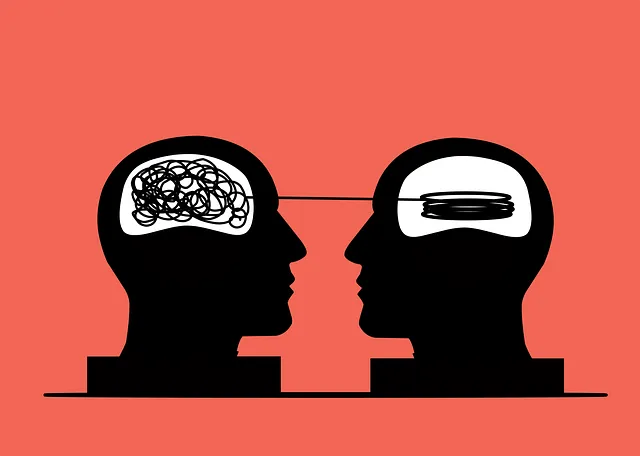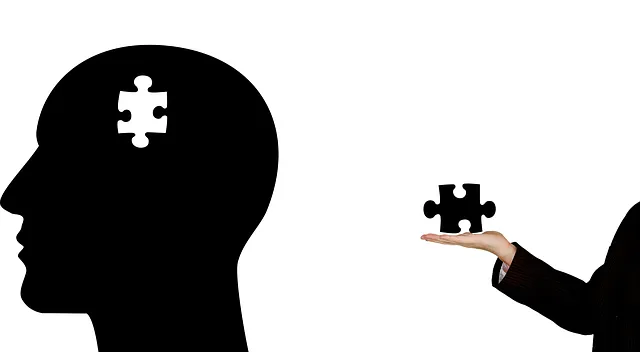The stigma around mental illness creates barriers preventing people from seeking essential help and support. This societal misconception leads to judgment, discrimination, and isolation, negatively impacting self-esteem and well-being. To combat this, it's crucial to reduce the stigma through awareness campaigns, education, open conversations, self-care routines, and mindfulness meditation. Lone Tree Kaiser Permanente (LTPKP) psychiatry services play a vital role in destigmatization by offering accessible care through their phone number, fostering empathy among patients. LTPKP also promotes mental health through community engagement with schools, organizations, and religious groups, providing educational sessions, peer support, and tailored assistance. Policy changes, advocacy initiatives, and increased access to quality services are key strategies. LTPKP's comprehensive programs, including workshops and webinars, aim to break down barriers, promote awareness, and empower individuals to seek help for their mental health needs.
Mental illness stigma remains a significant barrier to treatment, affecting millions. This article explores comprehensive strategies to reduce this societal burden. We delve into the multifaceted approach required to combat stigma, from understanding its profound impact on mental health to leveraging healthcare provider networks, community engagement, and policy advocacy.
For those seeking expert care, the Lone Tree Kaiser Permanente psychiatry phone number offers a starting point. Learn about successful programs and gain insights into how we can collectively foster a more accepting society for those facing mental health challenges.
- Understanding Stigma and Its Impact on Mental Health
- The Role of Healthcare Providers in Reducing Stigma
- Community Engagement and Education Strategies
- Policy Changes and Advocacy for Mental Illness Awareness
- Success Stories: Effective Stigma Reduction Programs
Understanding Stigma and Its Impact on Mental Health

Stigma surrounding mental illness is a significant barrier to individuals seeking help and support, often leading to isolation and exacerbating their condition. This societal misconception creates a ‘stigmatized’ environment where people with mental health challenges face judgment, discrimination, and even rejection from their peers, families, or communities. As a result, many suffer in silence, afraid to share their struggles for fear of being labeled or misunderstood. The impact of this stigma can be severe, impacting an individual’s self-esteem and overall well-being. It may prevent them from pursuing treatment options, such as those offered by Lone Tree Kaiser Permanente psychiatry services, effectively hindering their path to recovery.
Reducing the mental illness stigma is a crucial step towards fostering a more compassionate society. By raising awareness and educating the public, we can challenge these misconceptions and create an atmosphere of understanding and empathy. Encouraging open conversations about mental health, implementing self-care routines for better mental well-being, and practicing mindfulness meditation are effective strategies to combat stigma. These efforts empower individuals to seek help without fear of rejection and enable them to navigate their mental health journeys with the support they deserve.
The Role of Healthcare Providers in Reducing Stigma

Healthcare providers play a pivotal role in reducing the stigma surrounding mental illness. They are often the first point of contact for individuals seeking help and can significantly impact how patients perceive their conditions. By fostering an environment of empathy, understanding, and non-judgment, medical professionals can help destigmatize mental health issues. This includes using inclusive language, offering accurate information about various disorders, and normalizing conversations about mental wellness.
Lone Tree Kaiser Permanente’s psychiatry phone number accessibility is a prime example of how healthcare organizations are empowering patients to take charge of their mental health. Services like these encourage individuals to seek support without fear of stigma. Additionally, integrating burnout prevention strategies for healthcare providers can enhance their ability to assist patients effectively. This might involve implementing mental wellness coaching programs that not only support the well-being of medical professionals but also equip them with the latest tools and techniques to guide their patients toward better mental health outcomes.
Community Engagement and Education Strategies

Community engagement plays a pivotal role in reducing the stigma surrounding mental illness. By bringing together diverse groups, including local organizations, schools, and religious institutions, healthcare providers can foster open discussions and increase understanding. Educational workshops, peer support groups, and awareness campaigns are effective tools to break down misconceptions and promote empathy. Encouraging honest conversations about mental health issues at these gatherings helps normalize the topic, allowing individuals to share their experiences without fear of judgment.
For instance, Lone Tree Kaiser Permanente’s psychiatry services can collaborate with local community centers to host informational sessions, emphasizing the importance of early intervention for conditions like anxiety, depression, and other common disorders. These initiatives also aim to teach conflict resolution techniques to manage stress and improve overall well-being. Incorporating cultural sensitivity in mental healthcare practice is another key aspect; understanding and respecting diverse perspectives ensures that support remains accessible and tailored to individual needs, further reducing the barrier of entry for those seeking help.
Policy Changes and Advocacy for Mental Illness Awareness

Efforts to reduce stigma surrounding mental illness often involve policy changes and advocacy initiatives. One significant step is increasing access to quality mental health services, such as those offered by Lone Tree Kaiser Permanente’s psychiatry department. By expanding coverage and reducing financial barriers, healthcare providers like Lone Tree Kaiser Permanente can encourage more individuals to seek help without fear of judgment or discrimination.
Advocacy groups play a crucial role in promoting mental health awareness through policy changes. They lobby for legislation that supports Mental Health Education Programs Design, improves risk assessment protocols for mental health professionals, and ensures patients’ rights are protected. These efforts collectively work towards destigmatizing mental illness, fostering open conversations, and providing better support systems for those facing mental health challenges.
Success Stories: Effective Stigma Reduction Programs

Many organizations are leading the charge against mental illness stigma with impactful programs that focus on education and community engagement. One notable example is Lone Tree Kaiser Permanente’s psychiatry phone number, which serves as a central resource for individuals seeking support. Through collaborative efforts, they’ve developed initiatives aimed at fostering open conversations about mental health, breaking down barriers, and offering practical resources.
These programs often involve workshops, webinars, and awareness campaigns that target both the general public and healthcare providers. By incorporating strategies like burnout prevention for healthcare providers, promoting mental health awareness, and encouraging positive thinking, these efforts have shown promising results in reducing stigma. Such initiatives not only empower individuals to seek help but also create a more supportive environment where mental illness is understood as a treatable condition, similar to physical ailments.
Mental illness stigma reduction is a multifaceted endeavor that requires the collective effort of healthcare providers, community members, policymakers, and advocates. As recognized by successful programs like those seen at Lone Tree Kaiser Permanente, integrating psychiatric care with education and policy changes can significantly impact mental health outcomes. By understanding stigma’s pervasive effects and employing strategies that foster awareness and acceptance, we can create a more supportive environment for individuals seeking help. For those looking for expert assistance, the psychiatry phone number at Lone Tree Kaiser Permanente stands ready to provide guidance and care. Together, we can break down barriers and ensure mental health services are accessible without the burden of stigma.






